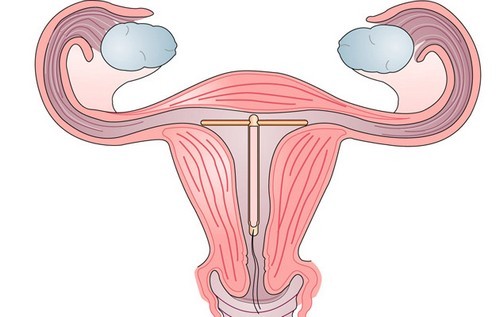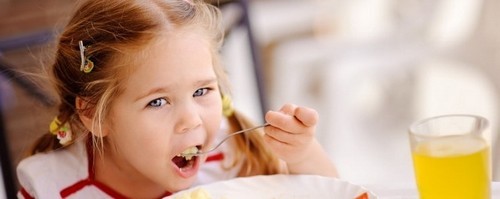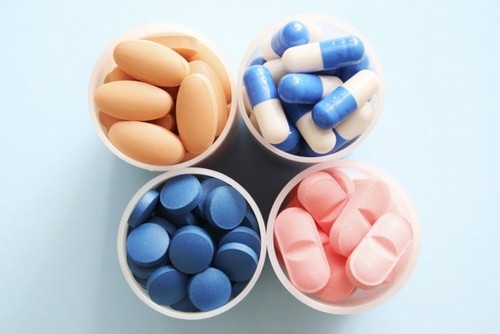The postpartum period is the time when the female body returns to normal after pregnancy and childbirth. The duration of the postpartum period is considered to be the first 2-4 hours after the birth of the baby (early postpartum period) and 6-8 weeks after birth (late).
Physical sensations
Following childbirth, almost all women experience fatigue, lethargy and drowsiness. And already from the 2nd day, with the normal course of the recovery process, a woman feels much better.
In the early days, there may be pain in the genital area, even in the absence of tears or incisions. This is a consequence of tissue stretching during childbirth. The pains are moderate and will disappear after a couple of days. With tears or cuts, pain can last up to 7-10 days. After a cesarean section, pain may occur in the suture area.
The first day after childbirth, a woman may not feel the urge to urinate. This is explained by the gestation of the fetus, which squeezed the organs of the small pelvis, especially the bladder, for a long time. To stimulate the bladder, you need to move more. If urination does not occur for more than 8 hours, you should consult a doctor.
For the first time a day after giving birth, a woman often has constipation. This is most often associated with weakness of the abdominal wall, limited motor activity, malnutrition and fear of diverging seams. But do not worry about the seams. You just need to move more and establish proper nutrition.
From the third day there is a significant increase in the amount of milk in the breast, which increases the risk of mastitis. At the same time, the mammary glands can increase in size, their hardening is observed, a sensation of pain, even the body temperature of a young mother can increase. All these are signs of mastitis. In order to avoid painful problems, it is recommended that from 3 days after birth, limit the intake of fluids to 800 milliliters per day, and also breastfeed the baby more often.
It is necessary to monitor the outflow of milk and consult with doctors, this will help to avoid complications. If necessary, the doctor may prescribe additional procedures to facilitate the outflow of milk. Already after 1-2 days, with proper application and daily nutrition, hardening, in other words, mastitis will disappear.
Psychological condition
How much happiness brings a child into the life of every woman. But increasingly, in the eyes of young mothers in the postpartum period, tears are observed. Specialists associate this phenomenon with postpartum depression. During the bearing of a child in the female body, hormonal jumps occur at the extreme borders, the maximum during pregnancy and the minimum after childbirth, which affects the emotional state of a woman. In this regard, most mothers have irritability and nervousness in the late postpartum period, emptiness, excitement for various reasons, sleep disturbances and appetite.

In 10% of women, this postpartum period is delayed indefinitely, and becomes painful. If the symptoms of depression persist for longer than 2 weeks, then this may be a sign of a serious illness, in which it is recommended to seek help from specialists.
Indicators that depression is getting out of hand are:
- A manifestation of a feeling of fear, fear of tomorrow;
- Indifference, renunciation of food, gravitation toward absolute loneliness;
- Long-term aggressive attitude towards the newborn;
- Sleepless nights haunting nightmares;
- A systematic feeling of personal hostility;
- Other deviations in the psychological sphere, having a systematic orientation.
How to deal with postpartum depression?
Postpartum depression is a serious problem compared to regular postpartum spleen. Many newly minted mothers were able to overcome postpartum spleen and learned to enjoy every minute spent with their little miracle, but there are those who have passed on to the next, more difficult stage – postpartum depression. Such women feel depressed and miserable.
Key recommendations for depression:
- Full rest. It also does not hurt to find a couple of hours in order to lie down in the daytime. For example, during the period of a child’s sleep.
- It is imperative to include a trip to the hairdresser, a beauty salon or easy shopping on your to-do list. It is advisable to please yourself with such “sorties” as often as possible. Change is the strongest medicine in the fight against depression that has occurred with the birth of a child.
- A complete diet and vitamin therapy.
- Breathing exercises and fresh air.
Complications
The appearance of a child is a big burden for a woman’s body. Therefore, young mothers can experience various complications in the postpartum period. Most often, the deteriorating state of a woman’s health is significant loss of blood, anemia, hormonal failure. In the postpartum period, a woman can decrease all the body’s natural defenses, which can lead to a variety of inflammatory processes and complications. In addition, during this period, a woman is at high risk of all kinds of infections and microbes that are transmitted only sexually: gonococcus, chlamydia, mycoplasma and others.

Postpartum endometritis
Postpartum endometritis is an inflammatory process of the uterine cavity. This complication most often occurs after cesarean section, as well as with a prolonged anhydrous birth period (more than 12 hours). This diagnosis can also be observed in a woman who previously had many abortions, and who had an early birth due to the presence of inflammatory diseases in the past.
Prevention: if there is a real danger for a woman to have postpartum endometritis, after giving birth, doctors immediately prescribe a woman a course of antibiotics and conduct special treatment procedures.
Chorioamnionitis
The appearance of inflammation of the amniotic membranes (chorioamnionitis) can be caused by a complete or incomplete rupture of the membranes, which occurs, as a rule, due to the large anhydrous time interval in childbirth.
Postpartum mastitis
Mastitis is an inflammation in the mammary gland. The manifestation of mastitis is often observed for the first time months after childbirth. This disease can affect breast-feeding women.
The main signs of mastitis:
- temperature increase to 38.5 – 39 degrees,
- sudden pain in the mammary glands,
- breast redness
- expressing milk is very painful and does not give the desired result.
In order to prevent the appearance of mastitis as much as possible, a woman should eat right and balanced during pregnancy, avoid hypothermia and do self-massage of the mammary glands, but with extreme caution. It is not possible to fully protect yourself from postpartum mastitis, especially if there is a hereditary disposition to this disease.
Purulent infection in the body can also be a source of mastitis. A significant factor for the onset or absence of this disease can be the anatomical features of the female nipples and previously observed mastopathy. Mastitis is treated with antibiotics under the strict supervision of a doctor.
The most important thing is timely prevention, treatment, and naturally early diagnosis of possible complications. Therefore, young mothers should always monitor their own health, both before childbirth and in the postpartum period!
How to behave in the postpartum period?
In the first week after childbirth, while in the maternity ward, health workers monitor the woman in labor every day. They assess the general condition in the postpartum period, measure the pulse and pressure, temperature, check the condition of the mammary glands and uterus, etc. With complications of the postpartum period, the doctor will prescribe the necessary treatment and procedures necessary to maintain the body. A woman in labor is prescribed on the 5-6th day, provided that childbirth is without complications.
One of the most important rules that mom needs to follow in the postpartum period is the best possible relaxation and sleep. Duration, which should be at least 8-10 hours a day. Such a dream will provide an opportunity to restore strength after childbirth for subsequent care of the child.
They ask to get out of bed after a normal birth after 6 hours, after a cesarean section much later. Already on the first day after birth it is allowed to resort to breathing exercises, as well as to do self-massage to help reduce the uterus to the right size, which is very important at this stage of recovery.
Personal hygiene rules
It is very important to observe the rules of personal hygiene during this difficult period of life. A woman after childbirth is very weak and vulnerable to withstand the bacteria around her. Therefore, you need to wash after each visit to the toilet, especially if there are seams on the crotch. If stitches are applied, twice a day they are additionally treated with brilliant green or other antiseptics prescribed by a doctor.
It is necessary to monitor the cleanliness of the gaskets. For this stage, special postpartum pads, or ordinary ones with a cotton surface, are best suited. Regardless of the filling, it is necessary to replace the gasket every 2-3 hours, as often as possible.
Taking a shower unconditionally twice a day, then you should wash your mammary gland. There is no need to wash the breast with each feeding. Bathing in the first month after birth is prohibited. Underwear and bedding should be cotton. Underwear is changed once a day, bed linen – at least 1 time in 3 days.
Nutrition
The nutrition of a nursing woman in the postpartum period should be natural and high-calorie. The number of calories required is 2500-3000 kcal. For the first time 2 days after birth, food should not be as nutritious as digestible. From day 3, it is preferable to follow a diet with the superiority of dairy, cereals, fruits and vegetables.
It is necessary to exclude from the food menu spicy, fatty, smoked and canned foods, as well as alcohol it is all harmful allergens for the baby.
Every day, try to drink milk or biokefir (at least 1/2 liter), eat cottage cheese (50 g) or cheese (20 g), a combination of vegetables and fruits (1/2 kg), use vegetable oils. It is imperative that you drink pure water with established lactation in an amount of at least 1 / 2-2 liters daily.
Many women are interested in the question of how long the body will recover after childbirth. Only a responsible attitude to your health, the necessary information and timely actions will help to overcome the postpartum period most comfortably and safely.



